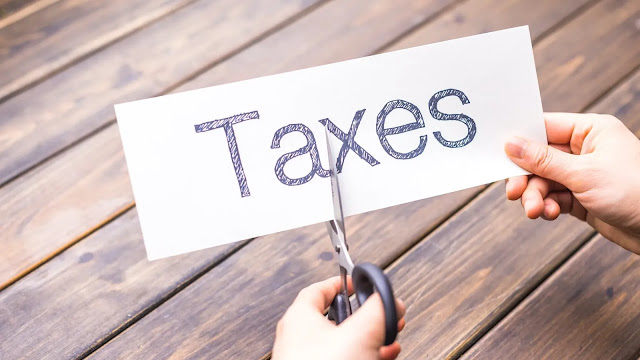Are taxes taking a toll on your finances? Don't worry; there are smart strategies to trim your tax bill. In this article, we'll explore various methods that can help you reduce your taxes and keep more money in your pocket
Employ a Home-Based Employee to Reduce Taxes
Under certain conditions, hiring an employee to work in your home can provide you with a tax credit. To take advantage of this benefit, the home employment must occur in France at your main or secondary residence. This employee can be directly employed by you or indirectly by an association, company, or declared body.
The nature of home employment can range from childcare and cleaning to gardening, DIY work, beauty services, domestic assistance, hairdressing, tutoring, ironing, and meal preparation. The tax credit equals 50% of the expenses incurred, up to a yearly limit of 12,000 euros.
Investing in Tax-Exempt Real Estate
Several tax exemption schemes offer the opportunity to invest in real estate while benefiting from a tax reduction. One such scheme is the Pinel scheme, which provides tax reductions for the acquisition of new homes, homes under construction, homes undergoing rehabilitation, or homes built by the taxpayer. However, these reductions are subject to certain conditions, including income limits for tenants.
Other options for reducing your tax burden through real estate investments include the Malraux law, which provides tax reductions for investing in old and rehabilitated properties in heritage sites, and the status of a professional furnished rental company. The latter offers two possible tax regimes: micro-BIC or real, with varying deductions.
Buy a Bare-Ownership Home
Purchasing a property in bare ownership can offer tax benefits. In this arrangement, the usufruct (the right to use and enjoy the property) is transferred to another person, often a social landlord who manages the rental. This arrangement can last for fifteen to twenty years, during which you won't receive rent, and consequently, you won't pay taxes.
The advantages of this approach are substantial. You can buy the property at a significantly lower cost, free yourself from property management, and, at the end of the contract, regain full ownership of the property without additional costs or taxes.
Carry Out Energy-Saving Works
The tax credit for energy transition allows you to deduct a portion of the expenses incurred for energy-saving renovations. To benefit from this tax reduction, the work must be carried out by an RGE certified company. Eligible works may include acquiring and installing high-energy boilers, replacing single-glazed windows with double-glazed ones, purchasing thermal insulation materials, and installing renewable energy-based heating and hot water systems.
The tax credit amounts to 30% of the expenses, but there is a limit to the eligible expenses.
Donate to Reduce Your Tax
If you're inclined to give back, making a donation to an organization of general interest or one recognized as being of public utility can reduce your tax bill. The tax deduction is 66% of the donation amount, within a limit of 20% of your taxable income. Donations to organizations that help those in need also offer opportunities to reduce your taxes.
Conclusion
Taxes can significantly impact your budget, but with these strategies, you can navigate the tax landscape more effectively. From employing home-based help to investing in real estate and carrying out energy-efficient renovations, there are numerous ways to ease your tax burden.
FAQs
1. How does hiring a home-based employee reduce taxes?
Hiring a home-based employee can provide a tax credit of up to 50% of the expenses incurred, with a yearly limit of 12,000 euros.
2. What are the conditions for benefiting from the tax credit for energy transition?
To benefit from the tax credit for energy transition, the work must be carried out by an RGE certified company, and eligible works may include energy-efficient upgrades like installing high-performance boilers and thermal insulation.
3. How does purchasing a bare-ownership property reduce taxes?
Purchasing a property in bare ownership can result in tax savings because the usufruct is transferred to another person, often a social landlord, during which you won't receive rent and, thus, won't pay taxes.
4. Are there income limits for tenants in tax-exempt real estate investments?
Yes, various tax exemption schemes, like the Pinel scheme, have income limits for tenants as a condition for tax reductions.
5. What is the tax deduction for making donations?
When making donations to organizations of general interest or public utility, you can claim a tax deduction of 66% of the donation amount, up to 20% of your taxable income.











0 comments:
Post a Comment